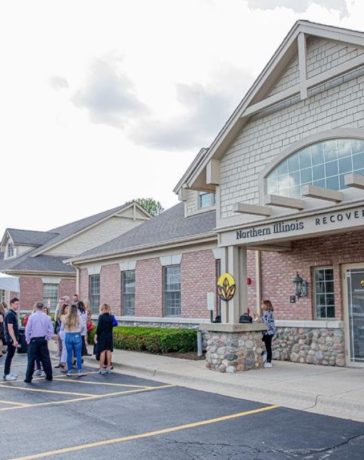When it comes to smoking, many people assume that cigars are a safer alternative to cigarettes. But is that really the case? While cigars are often marketed as a more refined and less harmful option, medical professionals and researchers have consistently raised red flags about their health risks. In this article, we’ll explore the real differences between cigars and cigarettes, what doctors say about each, and what consumers should know before visiting a local smoke shop in Texas or browsing tobacco selections online.
Understanding the Basics: Cigars vs. Cigarettes
Before diving into the health aspects, it’s important to distinguish between cigars and cigarettes:
- Cigars are generally larger, wrapped in tobacco leaves, and contain more tobacco than cigarettes.
- Cigarettes are smaller, wrapped in paper, and often include chemical additives.
Cigars can take up to an hour to smoke, while a cigarette may take just a few minutes. This difference in size and consumption time plays a role in how the body absorbs harmful substances.
Common Misconceptions About Cigars
One of the most persistent myths is that cigars are safer because smokers typically don’t inhale. However, this belief doesn’t account for the harmful effects of secondhand smoke or the absorption of toxins through the lining of the mouth.
Key Myths Include:
- Myth #1: Cigars are less addictive.
- Myth #2: Cigars don’t involve inhalation.
- Myth #3: Natural tobacco means fewer chemicals.
Doctors emphasize that cigars still deliver nicotine, a highly addictive substance, and expose users to carcinogens regardless of how they are smoked.
What Doctors Say About Cigars
Medical experts agree that cigars pose significant health risks, even if used occasionally. The longer burn time and high concentration of tobacco increase exposure to harmful toxins.
Health Risks Include:
- Oral cancer (lips, tongue, mouth, and throat)
- Lung cancer (especially if inhaled)
- Esophageal cancer
- Heart disease and high blood pressure
- Nicotine addiction
A study from the American Cancer Society reveals that regular cigar smokers are at increased risk for both oral and systemic diseases. The misconception that cigars are a safer leisure activity needs to be addressed, especially in Texas where tobacco products are widely available at any smoke shop.
Cigarettes: The Established Health Threat
Cigarettes have long been the focus of public health campaigns due to their well-documented risks. Every puff delivers hundreds of harmful chemicals, including formaldehyde, arsenic, and lead.
Risks from Cigarette Use:
- Higher rates of lung cancer
- Cardiovascular disease
- Stroke
- Respiratory issues (COPD, emphysema)
- Addiction and withdrawal symptoms
Doctors point out that while cigarette smoking is often more habitual (multiple times per day), even a few cigars per week can have comparable effects over time.
Nicotine Content: A Hidden Danger
Both cigars and cigarettes contain nicotine, but cigars typically have much more. A single cigar can contain as much nicotine as an entire pack of cigarettes. This increases the risk of addiction even among casual users.
At any Texas smoke shop, consumers will find cigars marketed with appealing flavors or exotic origins. While this might enhance the aesthetic experience, it does not lessen the health risks.
Secondhand Smoke: A Shared Threat
Whether it’s a cigar or cigarette, secondhand smoke poses serious risks to those nearby. According to the Centers for Disease Control and Prevention (CDC), cigar smoke can be even more toxic due to higher levels of ammonia, carbon monoxide, and tar.
Impacts on Others:
- Increased risk of lung cancer in non-smokers
- Respiratory issues in children and the elderly
- Pregnancy complications
Doctors strongly advise avoiding indoor smoking or smoking in enclosed spaces, regardless of product type.
Why the Perception Gap Exists?
Cigars are often associated with special occasions, luxury, or relaxation. This cultural image contributes to the misconception that they are less harmful. Packaging and marketing can also influence how cigars are perceived, especially in upscale Texas smoke shops like 20 After 4.
Influences Include:
- Media portrayal (films, advertisements)
- Availability of flavored cigars
- Social acceptance in certain settings
Despite this perception, doctors emphasize that the method of tobacco delivery does not negate the chemical risks involved.
Expert Recommendations for Smokers
Doctors and public health officials recommend quitting all forms of tobacco use. However, for those choosing between cigars and cigarettes, understanding the specific risks is critical.
Tips from Health Experts:
- Don’t assume occasional cigar use is safe.
- Seek help to quit through cessation programs.
- Visit a healthcare provider for nicotine alternatives.
- Avoid misleading marketing claims in stores or online.
If you’re a smoker in Texas, local options like 20 After 4 or your nearby smoke shop may offer nicotine-free alternatives or cessation tools.
What to Watch For When Visiting a Texas Smoke Shop
Texas has a diverse tobacco retail environment. At a Texas smoke shop, especially a well-stocked one like 20 After 4, you’ll find everything from cigars and cigarettes to vaping devices and CBD products.
Buying Tips:
- Always check the nicotine content.
- Ask staff for health-conscious recommendations.
- Consider non-tobacco alternatives like herbal wraps or nicotine pouches.
Remember, even products labeled as “natural” or “organic” still carry health risks if they involve tobacco.
Final Verdict: Are Cigars Safer?
Based on medical research and expert opinions, the answer is no. Cigars are not a safer alternative to cigarettes. They may be used less frequently, but the quantity of tobacco and levels of harmful substances make them equally, if not more, dangerous over time.
Whether you’re a regular smoker or an occasional celebratory cigar enthusiast, the long-term risks are clear. Health professionals advise quitting or at least reducing use as much as possible.
Conclusion: Informed Choices at the Smoke Shop
Understanding the health risks of cigars versus cigarettes can help consumers make more informed decisions. Before picking up that cigar from a Texas smoke shop or lighting a cigarette, consider the medical facts.
If you’re located in Texas and frequent places like 20 After 4, keep an eye out for products that help reduce nicotine dependence. Tobacco use—regardless of the form—remains a major public health issue, but with education and support, safer choices are within reach.
















